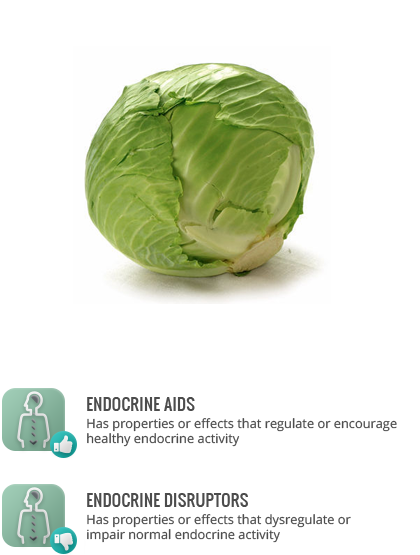Cabbage, green
Definition
Green cabbage is the most commonly grown form of cabbage with round heads of tight overlapping leaves.
Health considerations
Green cabbage is a source of fiber as well as vitamins C, K, B6, and folate, and potassium, manganese, small amounts of calcium, iron, magnesium, and phosphorus. Cabbage extracts have been found to have both estrogenic and antiestrogenic effects, thus they may aid or disrupt the endocrine system. Green cabbage is a source of glucosinolates, and isothiocyanates are formed from these glucosinolates both when consumed raw and cooked. See: Glucosinolates, Isothiocyanates.
Keep in mind
Cooking reduces glucosinolate and isothiocyanate content of cabbage, with boiling causing the greatest loss and steaming causing the least.
May be found in
Soups, stews, cabbage rolls, coleslaw, slaw mixes, sauerkraut
References
Journal of Agricultural and Food Chemistry
Self Nutrition Data
The Kitchn
The World’s Healthiest Foods
Cancer Epidemiology, biomarkers & Prevention
Food Chemistry


